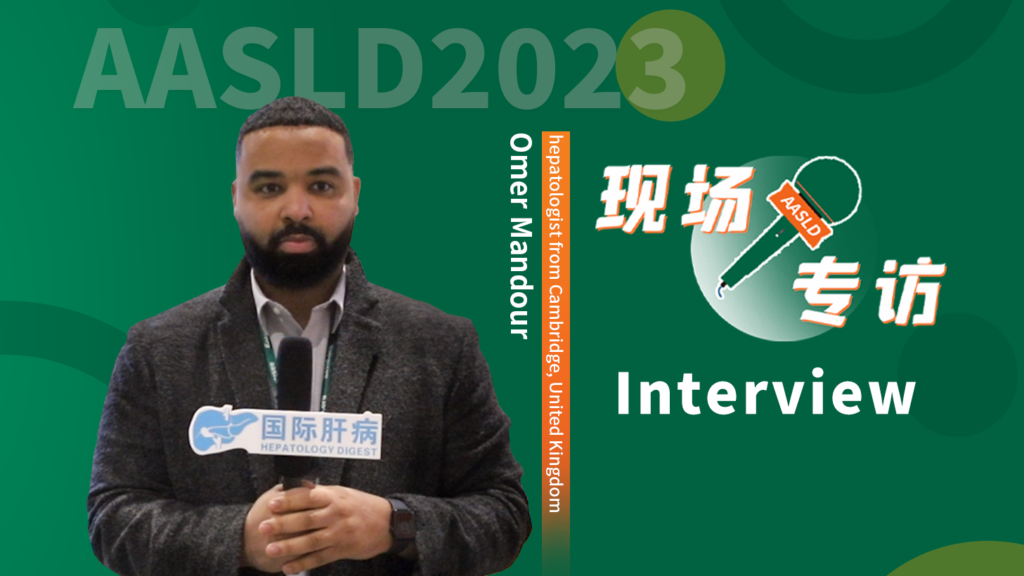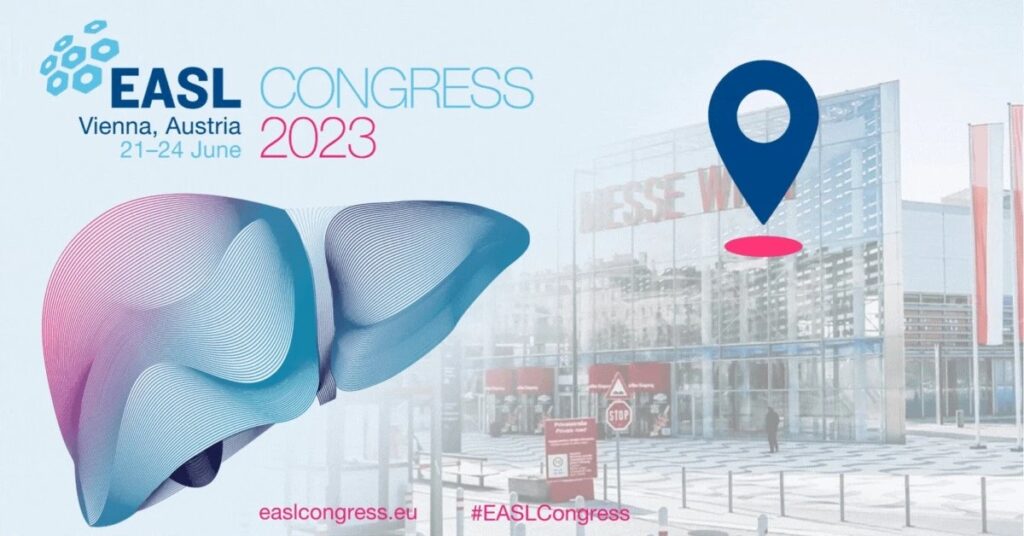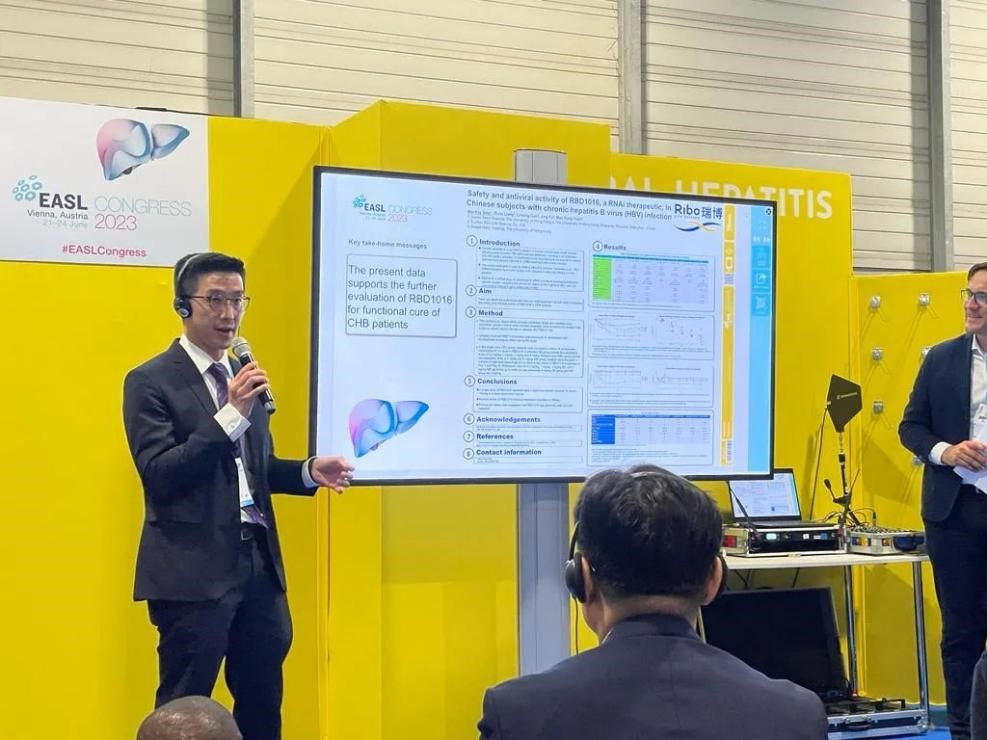Pinnacle Conversation | Advancements in the Diagnosis and Treatment of Metabolism-Related Fatty Liver Disease: Discussing New Developments, Sharing Experiences from Singapore and the United States, and Addressing Global Progress
Non-alcoholic fatty liver disease (NAFLD)/metabolic-associated fatty liver disease (MAFLD) is on the rise globally and has become the leading cause of chronic liver disease in China, posing a significant threat to public health. Establishing diagnostic models based on risk factors to assist clinical diagnosis and classification, or developing non-invasive assessment methods, is an important prerequisite for identifying more patients and effectively intervening in the disease process.
Dr. Lungen Lu: Intermittent Fasting vs. Standard Caloric Restriction – A Better Approach to Improving NAFLD Fibrosis and Metabolism
Dietary adjustments currently stand as the primary treatment for Non-Alcoholic Fatty Liver Disease (NAFLD). At the 58th European Association for the Study of the Liver (EASL) Annual Meeting (EASL 2023), Deepankshi Aggarwal from India presented their team's latest findings in an oral presentation. They discussed how time-restricted intermittent fasting may be superior to standard caloric restriction in improving the metabolic status and liver fibrosis of NAFLD patients. Dr. Lungen Lu's team from the First People's Hospital of Shanghai Jiao Tong University School of Medicine offered insights into this research.
Dr.Jinshui Pan’s Team: Revealing the Heavy Tumor Burden Caused by Metabolic Risk Factors Worldwide (1990-2019)
Non-alcoholic fatty liver disease (NAFLD) is becoming the most common chronic liver disease, often coexisting with various metabolic risk factors, which are significantly associated with the risk of various tumors. Dr.Jinshui Pan and ProfessoDr. Shang Weng from the Liver Disease Center of Fujian Medical University Affiliated First Hospital, along with Dr. Meizhu Hong from Mengchao Hepatobiliary Hospital, conducted an analysis and assessment of the global burden of metabolic-related tumors from 1990 to 2019 based on the Global Burden of Disease (GBD) database for 2019. The research paper was published in the journal Med, under Cell Press, with an impact factor of 17 in 2023. Additionally, these findings were selected for presentation at the 58th Annual Meeting of the European Association for the Study of the Liver (EASL 2023) and the EASL Congress 2023.
Dr.Wai-Kay Seto’s team Multiple Studies on Hepatic Diseases Management with New Hepatitis B Drugs Fatty Liver Monitoring and Liver Cancer Risk Factors
The 58th Annual Meeting of the European Association for the Study of the Liver (EASL2023) and the EASL Congress 2023 have come to a close. During this conference, Dr. Wai-Kay Seto and his research team from The University of Hong Kong Shenzhen Hospital/ The University of Hong Kong presented several studies. Hepatology Digest had the privilege of inviting Professor Wai-Kay Seto to introduce three of the significant studies: the impact of blood sugar control on reducing the risk of digestive tract tumors in diabetes patients [1], preliminary safety and antiviral activity analysis of the Chinese-developed siRNA new drug RBD1016 in the Chinese chronic hepatitis B population [2], and a new technique for portable assessment of fatty liver [3]. The details of these studies are as follows:
Dr. Wenshi Wang’s Team: Three Latest Research Findings on Hepatitis D and Hepatitis E Included in Conference Exchange
Hepatitis D (HDV) is a viral hepatitis caused by hepatitis D virus (HDV) infection, often occurring as a co-infection or superinfection with hepatitis B virus (HBV). Approximately 90% of chronic hepatitis B patients who become co-infected with HDV develop chronic hepatitis, increasing the risk of adverse outcomes such as liver failure, cirrhosis, and liver cancer. Due to the historical underestimation of HDV prevalence and disease burden, it has not received the attention it deserves. Hepatitis E virus (HEV) infection is a major cause of acute hepatitis globally, with no specific antiviral drugs available.
Dr. Chao Wu: Current State and Prospects of Clinical Cure for Hepatitis B
Clinical cure of hepatitis B has been a hot topic in the field of viral hepatitis, and the 58th Annual Meeting of the European Association for the Study of the Liver (EASL 2023) and the 2023 EASL Congress unveiled numerous advancements in new drug research. Dr. Chao Wu and his team from the Department of Infectious Diseases at the Affiliated Drum Tower Hospital of Nanjing Medical University have been engaged in both clinical and basic research on viral hepatitis. In the 2023 EASL Congress, their team contributed 14 research findings, with three of them receiving the Young Investigator Awards. Hepatology Digest invited Dr. Chao Wu to discuss the current state of clinical cure for hepatitis B and analyze future prospects, as well as his thoughts on the overall development of liver diseases.
Dr. Yong-an Ye’s Team: Predicting Virological Recurrence in Chronic Hepatitis B with Machine Learning After Entecavir Discontinuation
Currently, most chronic hepatitis B (CHB) patients cannot achieve a cure. While guidelines suggest that some CHB patients can discontinue nucleos(t)ide analogs (NAs) after consolidation therapy, virological recurrence remains common. Early virological recurrence typically predicts disease flare-up; however, there are limited biomarkers for assessing the risk of virological recurrence after treatment cessation.
Dr. Yong-an Ye 's team at the Dongzhimen Hospital of Beijing University of Chinese Medicine (Chinese Institute of Traditional Chinese Medicine for Liver Diseases) conducted a prospective randomized controlled trial (RCT) and constructed a new predictive model based on serological markers to identify the risk of early virological recurrence in Chinese CHB patients after discontinuing entecavir (ETV). The findings were presented in poster format during the 58th European Association for the Study of the Liver (EASL) International Liver Congress 2023
Dr. Minghua Zheng’s Team: AI-Based Digital Pathology Provides New Insights into NASH Fibrosis Reversal Induced by Lifestyle Intervention
Non-Alcoholic Steatohepatitis (NASH) is a common cause of chronic liver disease, and the degree of liver fibrosis is an important factor determining its clinical prognosis. Lifestyle intervention is the cornerstone of NASH treatment and can improve liver fibrosis. However, the specific effects of lifestyle intervention on micro-level liver fibrosis reversal are not clear. Dr. Minghua Zheng's team at the First Affiliated Hospital of Wenzhou Medical University used quantitative digital pathology technology qFibrosis to assess liver fibrosis characteristics in depth and explore the impact of the intensity of lifestyle intervention on NASH fibrosis. The relevant results were selected for poster presentation at the 58th Annual Meeting of the European Association for the Study of the Liver (EASL2023) and the 2023 EASL Congress.
Dr. Yanhang Gao’s Team: Non-Invasive Screening for ANA-Positive DILI Patients with AIH-Like Histological Features, Aiding in Precise Liver Biopsy!
Drug-induced liver injury (DILI) can mimic all features of acute and chronic liver diseases, including autoimmune hepatitis (AIH). Both conditions exhibit similarities in serology and histology, including the presence of…





